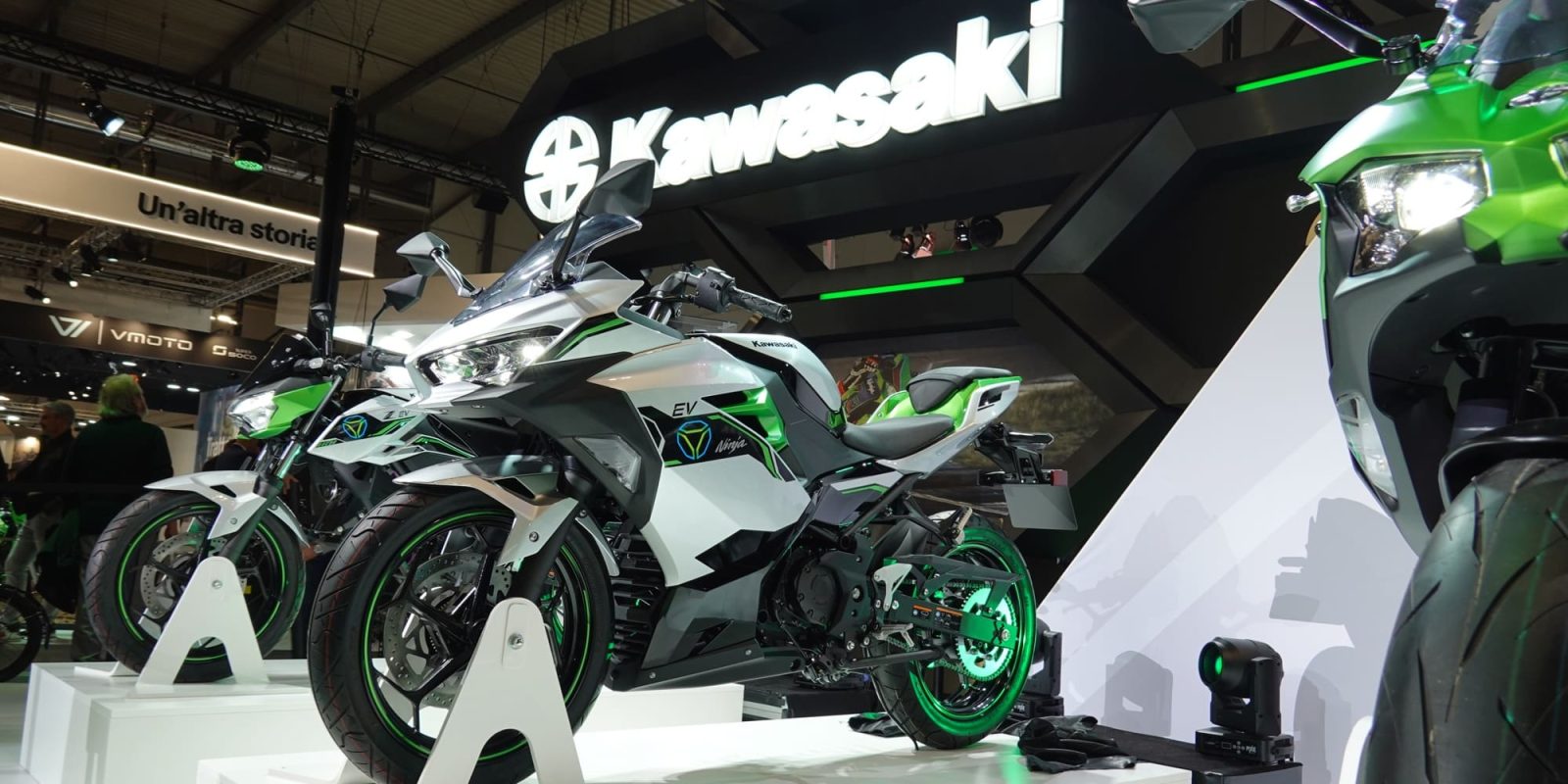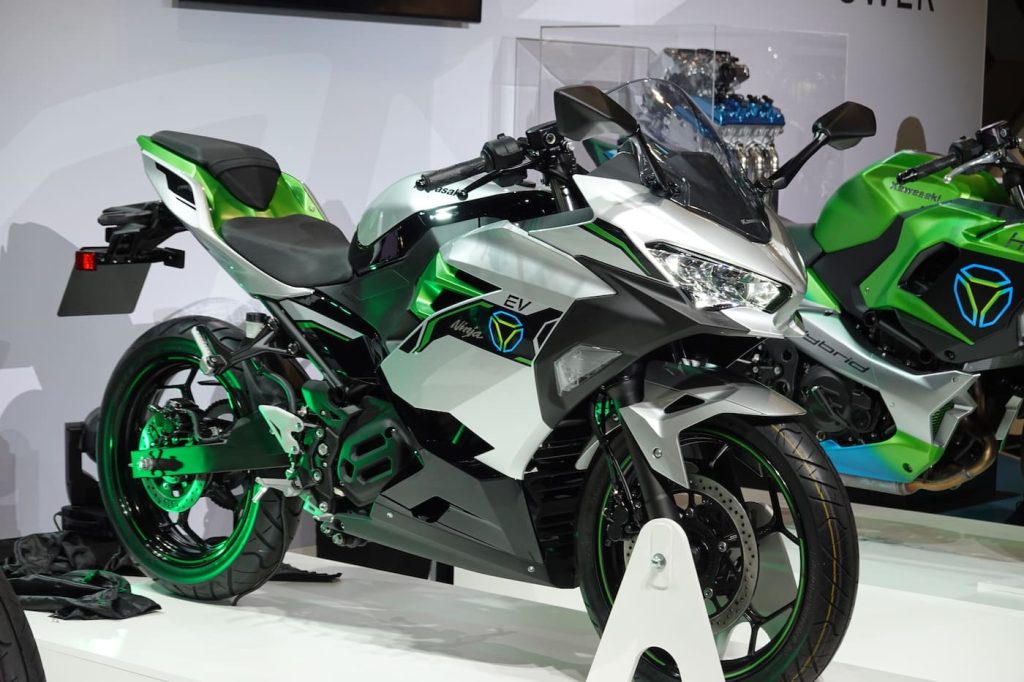
We first learned about Kawasaki’s upcoming electric street bikes last year at the 2022 EICMA Milan Motorcycle Show. And now it looks like the two electric motorcycles are ready for primetime.
The pair of electric models has begun homologation in Australia, as reported by Motorcycle.com. According to the homologation filings, the two electric motorcycle models have received the designation Ninja e-1 and Z e-1.
The bikes seem to use similar bodywork to their 400cc gasoline-powered counterparts, the Ninja 400 and Z400. However, the wheels and brakes look to be borrowed from the slightly lower-powered Ninja 300 and Z300.
When Kawasaki announced the bikes last year, the power was expected to be 11 kW (14.75 hp). The homologation filings for the Australian version lists the power at 9 kW (12 hp).
According to the filings, the weights are listed as 135 kg (298 lb.) for the Z e-1 model and 140 kg (309 lb.) for the Ninja e-1. However, it is not clear if that includes the two removable batteries that Kawasaki previously stated would power the bikes. The company has said that two 12 kg (26 lb.) batteries would power the bikes and be removable for charging. Together, they would add up to 3 kWh.
That is a relatively small battery for an electric motorcycle, likely meaning these bikes would be hampered by small city ranges and limited top speeds.

This could mark the first mass market electric street bike from a Japanese motorcycle company.
The Big Four motorcycle makers in Japan, consisting of Kawasaki, Honda, Yamaha, and Suzuki, have historically dragged their feet when it comes to electric motorcycle development. While each has showed some level of progress with prototypes, none has yet reached commercialization of a full-size electric motorcycle outside of smaller electric scooters.
By comparison, American companies like Zero Motorcycles have sold electric motorcycles for over a decade, and legacy companies like Harley-Davidson (and its spin-off company LiveWire) have nearly half a decade of electric motorcycle sales under their belts. Italian electric motorcycle manufacturer Energica also has nearly a decade of sales, competing against high-end sport bikes like Ducati.
Those motorcycles all feature batteries of at least 14 kWh though, meaning these 3 kWh Kawasaki motorcycles could be rolling up short with a fraction of the battery and motor performance of American and Italian rivals.
